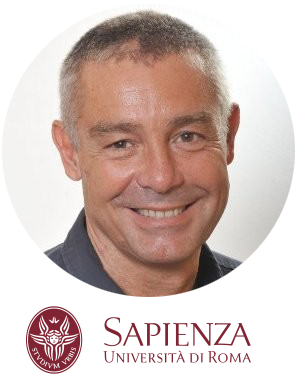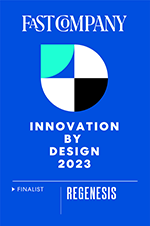 When it comes to making an impact on the future of environmental remediation, Marco Petrangeli Papini is doing his part by teaching the next generation of bioremediation professionals. As an Associate Professor at the University of Rome La Sapienza, a valued REGENESIS client, Papini is tasked with advanced training of students who want to specialize in solutions to combat the contamination of environmental matrices. In addition, he is also the University’s Director of the II Level Master Course on Characterization and Technologies for the Remediation of Contaminated Sites. His instructional role in environmental remediation is one he takes very seriously, knowing that the future of our planet’s health rests on the shoulders of those who are studying and learning the latest trends and technologies. He shares, “As a Director of an advanced Master course on Remediation of Contaminated Sites, my primary focus is to guarantee an adequate training course to prepare professionals to manage a contaminated site, from its accurate characterization through the choice of the best strategy for its reclamation.”
When it comes to making an impact on the future of environmental remediation, Marco Petrangeli Papini is doing his part by teaching the next generation of bioremediation professionals. As an Associate Professor at the University of Rome La Sapienza, a valued REGENESIS client, Papini is tasked with advanced training of students who want to specialize in solutions to combat the contamination of environmental matrices. In addition, he is also the University’s Director of the II Level Master Course on Characterization and Technologies for the Remediation of Contaminated Sites. His instructional role in environmental remediation is one he takes very seriously, knowing that the future of our planet’s health rests on the shoulders of those who are studying and learning the latest trends and technologies. He shares, “As a Director of an advanced Master course on Remediation of Contaminated Sites, my primary focus is to guarantee an adequate training course to prepare professionals to manage a contaminated site, from its accurate characterization through the choice of the best strategy for its reclamation.”
To prepare for a career in teaching, Papini fulfilled his required coursework at the University of Rome La Sapienza, completing his degree in Industrial Chemistry in 1990. Soon after, he earned his PhD in Chemical Sciences, while working part-time at the Institute of Terrestrial Ecology of the ETH in Zurich. He continues, “After earning my PhD I received a permanent position at La Sapienza in 1995, as University Researcher. My official teaching title is Associate Professor of Chemical Plant and Remediation of Contaminated Sites. The University of Rome is extremely large, and covers all the different branches of knowledge, with more than 120,000 students.” When conducting research, his key interest is in the development of sustainable processes (combined chemical-physical and biological ones) for the in-situ remediation of contaminated sites. He adds, “I manage various national and a few international projects on the remediation of contaminated aquifers until realization of full-scale installations.” When asked about the future goals of the University of Rome La Sapienza, Papini points out they are primarily institutional. He goes on to explain, “Our first goal is to make progress toward significant improvement in the preparation of the future professionals in the field of remediation by providing a strong scientific basis, but also a deep understanding of the more operative problems. Secondarily, it’s the development of new approaches for increasing the capacity of site reclamation through effective and sustainable processes.”
To stay abreast of the latest trends and technology in his field, Papini attends several conferences each year, including the last two Battelle Conferences. He continues, “I attended the 2018 Palm Springs Battelle on Chlorinated Compounds, and this year’s Baltimore conference on Bioremediation and the topic of reclamation of contaminated sites. I feel everyone should strive to keep updated, since our field is in continuous evolution. I also take part in conferences to understand the new technological improvements and the new directions in research.” When it comes to working with REGENESIS, Papini points to the company’s combination of experience and collaboration as key strengths, and offers an example of a recent project. He continues, “Nearly every year I participate in the Battelle conferences on Bioremediation and Chlorinated Compounds, and during one conference in 2014 I heard about the development of the new PlumeStop® product. I was strongly interested because at that time I was in charge to develop the remediation strategy for a low concentration contaminated chlorinated plume in Italy (around a new underground high-speed railway station in Italy). The possibility to couple adsorption and biological degradation in-situ was potentially the appropriate solution for the site. I started a fruitful cooperation with the REGENESIS people. We tested the material at the lab scale and then in a pilot test at the contaminated site. We were then able to optimize the strategy, and finally we performed the first European full-scale installation using PlumeStop®. After almost two years from the full-scale injections, the results are so promising that in the next weeks we will probably conclude the remediation procedure.”
Living in Rome, with his wife and two children, (Tommaso, 11 and Sara, age 7), Papini enjoys playing tennis and cycling in his free time. He shares, “Cycling is a new passion, and I started to mountain bike ride in the last three years and enjoy our countryside around the city. Unfortunately, a year and half ago I had a bad accident. A car struck me and I had several bone fractures. I’m doing my best to recover and hope to come back soon to enjoy cycling and biking with my family.” When asked what he enjoys most about his work, the subject of teaching is brought up quickly, with research a close second. He continues, “Teaching is probably the most rewarding aspect of my job. I enjoy the interaction with young people interested in the recovery of contaminated environment. However, in the last few years I’ve become excited about the possibility to “scale up” my research, especially in the field of bioremediation, for solutions toward site remediation.” And the most demanding aspect of his work? “The interaction between the industrial world, control bodies, and the academic world can be quite challenging. Everyone sees the same problem but from different points of view. This is a real challenge, but if you are able to manage it then you are more successful in achieving a positive result.” And how would he encourage others to join in his field of study? He concludes, “From my point of view the remediation of polluted sites is a very attractive topic. The multidisciplinary characteristics make the work consistently stimulating. If one is interested in environmental issues and environmental protection, what could be better than directing one’s study to this sector?”
REGENESIS is proud to have Marco Petrangeli Papini, Associate Professor and Course Director at the University of Rome La Sapienza, as a valued client and partner in environmental remediation, and appreciates his passion to teaching those who want to go forward in providing successful remediation outcomes for REGENESIS and its clients.


 Americas
Americas Europe
Europe Français
Français Deutsch
Deutsch Italiano
Italiano Español
Español


